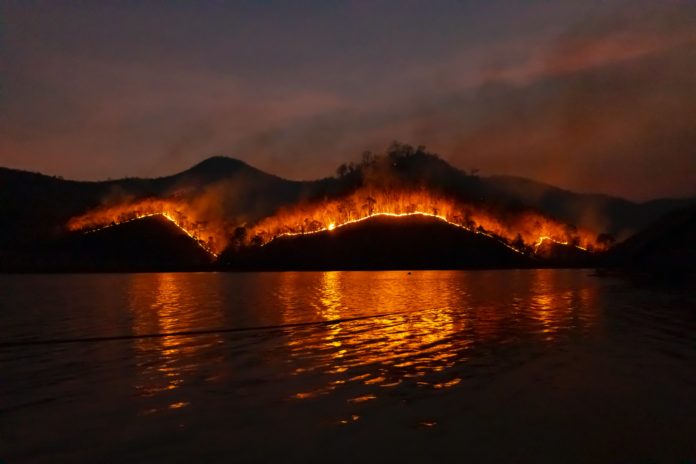As climate change continues unabated, scientists are warning of the emergence of a global wildfire crisis. Temperatures are rising and damp nights are becoming less common, creating conditions conducive to a surge in wildfires and smoke inhalation.
A new study published in The Lancet Regional Health Americas by a team of scientists, including from the University of Toronto, used a public birth weight database provided by Brazil’s Ministry of Health to analyze the effect of wildfire smoke exposure on birth weight.
Collecting the data
One of the co-authors of the study was Matthew Adams, a professor of Geographic Information Science at the University of Toronto. Along with scientists from Brazil, Denmark, and the U.S., the team obtained the birth weight data of over 1.5 million Brazilian newborns, which also included information about maternal age and home municipality.
Brazil was chosen as the country of interest due to the public availability of the birth weight data, in addition to it being a particularly fire-prone country. In addition, the authors claim that much of the previous research on this topic has been conducted in high-income countries. Collecting data from Brazil allows for researchers to understand any disparities in wildfire-related health outcomes in low and middle-income countries.
The researchers combined this with wildfire satellite data from Brazil’s National Institute of Spatial Research. This data was collected from a total of seven satellites, allowing for a high level of sensitivity and accuracy.
After controlling for other variables such as air pollution, socioeconomic status, and weather, the researchers overlapped the two datasets to obtain a map of birth weights and wildfires.
Analyzing the data
After analyzing the data, the researchers discovered that in the Southern region of Brazil, exposure to wildfires in the first trimester was associated with an 18.5% increase in low birth weight. This is defined by the World Health Organization as being under 2,500 grams. Wildfire exposure during the third trimester was also associated with an increase in low birth weight. Mothers in the Midwest region of Brazil also experienced a slight increase in low birth weight following exposure to wildfire smoke.
In combination with other studies in Massachusetts, Connecticut, Colorado, California, and China — which also found that wildfire smoke exposure during the first and third trimesters reduced birth weights — this research suggests that there are certain critical prenatal periods that are particularly sensitive to the particles found in wildfire smoke.
As Adams explained in a press release, the variety of particles and compounds that are burned in a wildfire can contribute to the varying health effects that they have.
“When you have wildfires associated with man-made structures, which is what we see in North America, we see these wildfires very often encroaching on communities and burning people’s homes. It’s not just burning the tree matter — you are burning lots of nasty compounds that are embedded in the structure of those man-made buildings.”
Broader implications
These findings should raise further concerns regarding the public health risks of wildfires. As climate change makes these events more likely, their harmful health effects on our most vulnerable populations should be examined more closely.
Particularly as wildfires become the new normal in many Canadian provinces, it is essential that measures are taken to mitigate their adverse effects.
Warning of the urgency of the matter, Adams stated, “We know a lot of the things we need to change, but when we start thinking about climate-related aspects, and looking at the clock, we don’t have an infinite amount of time to address many of these issues.”








































